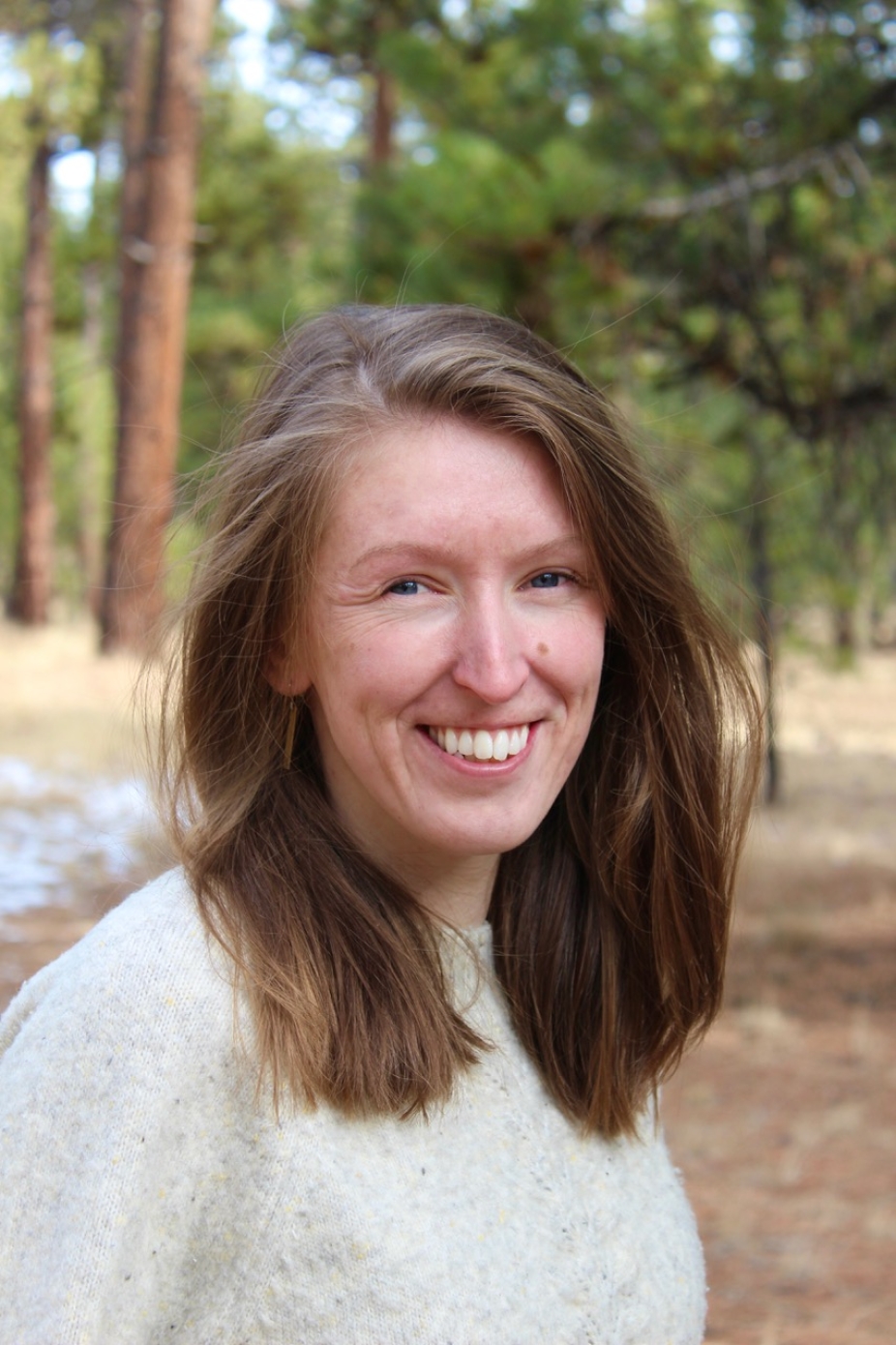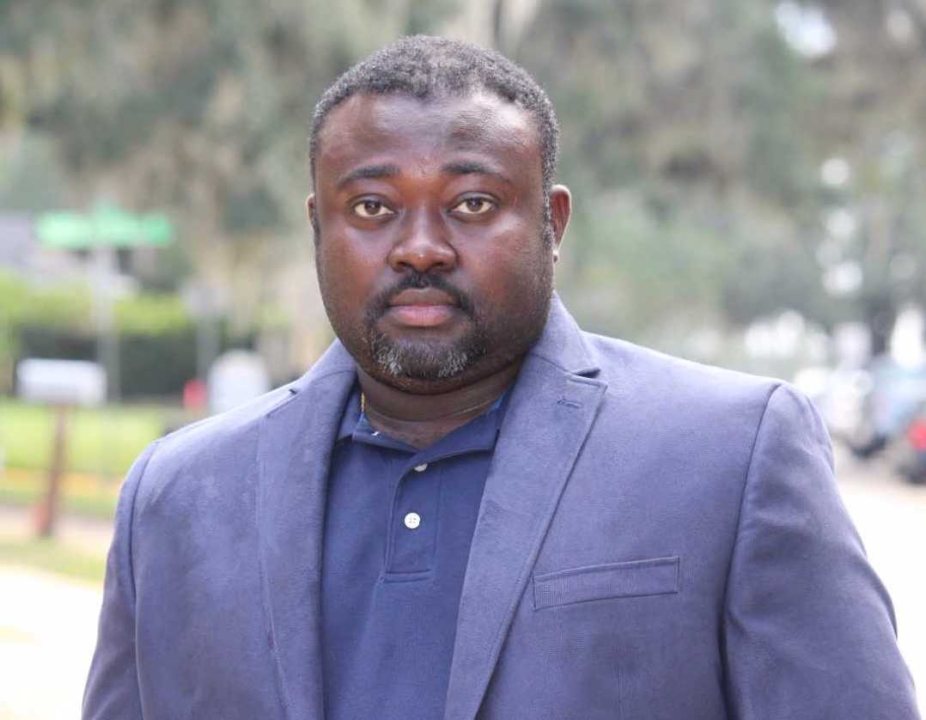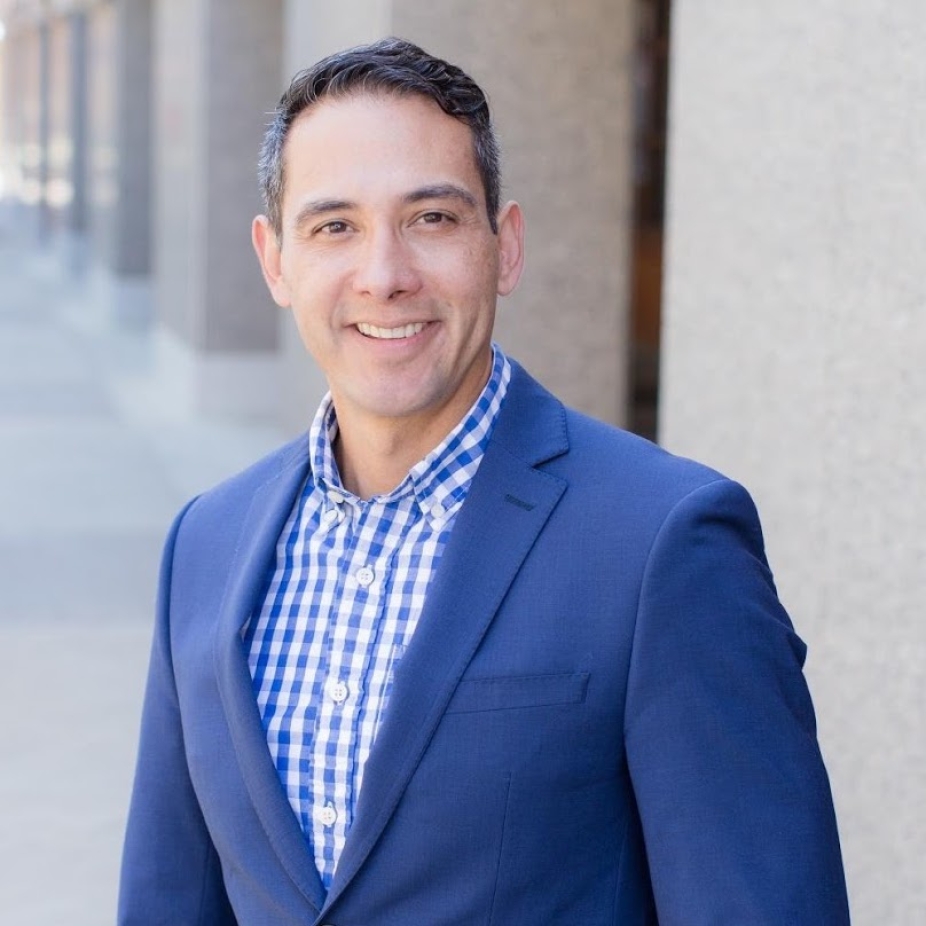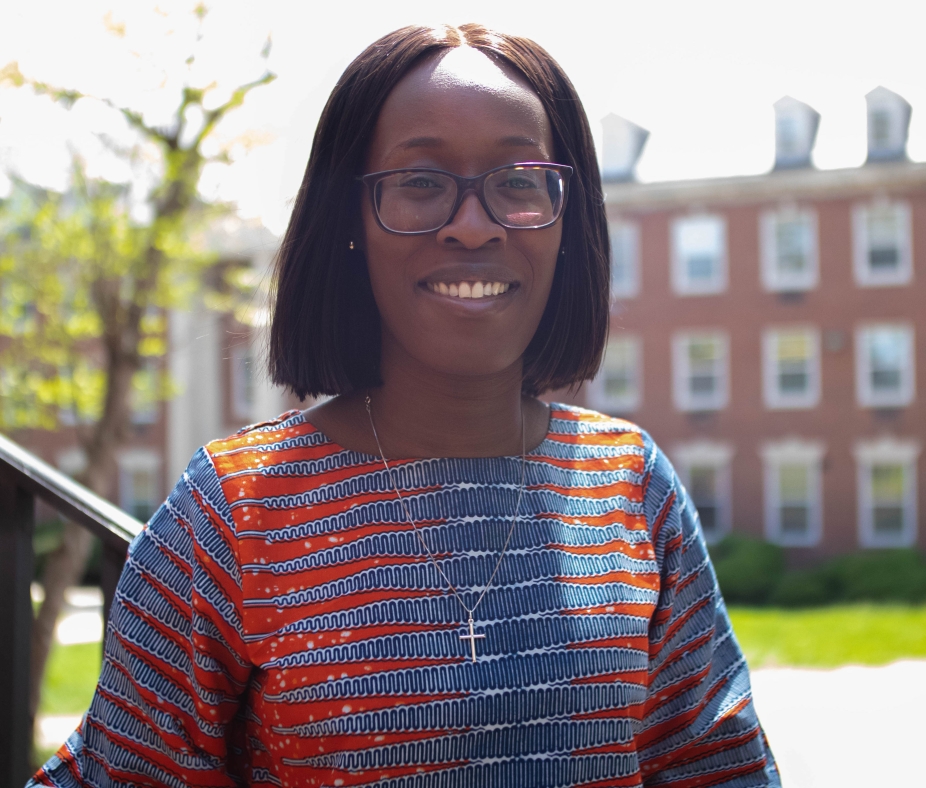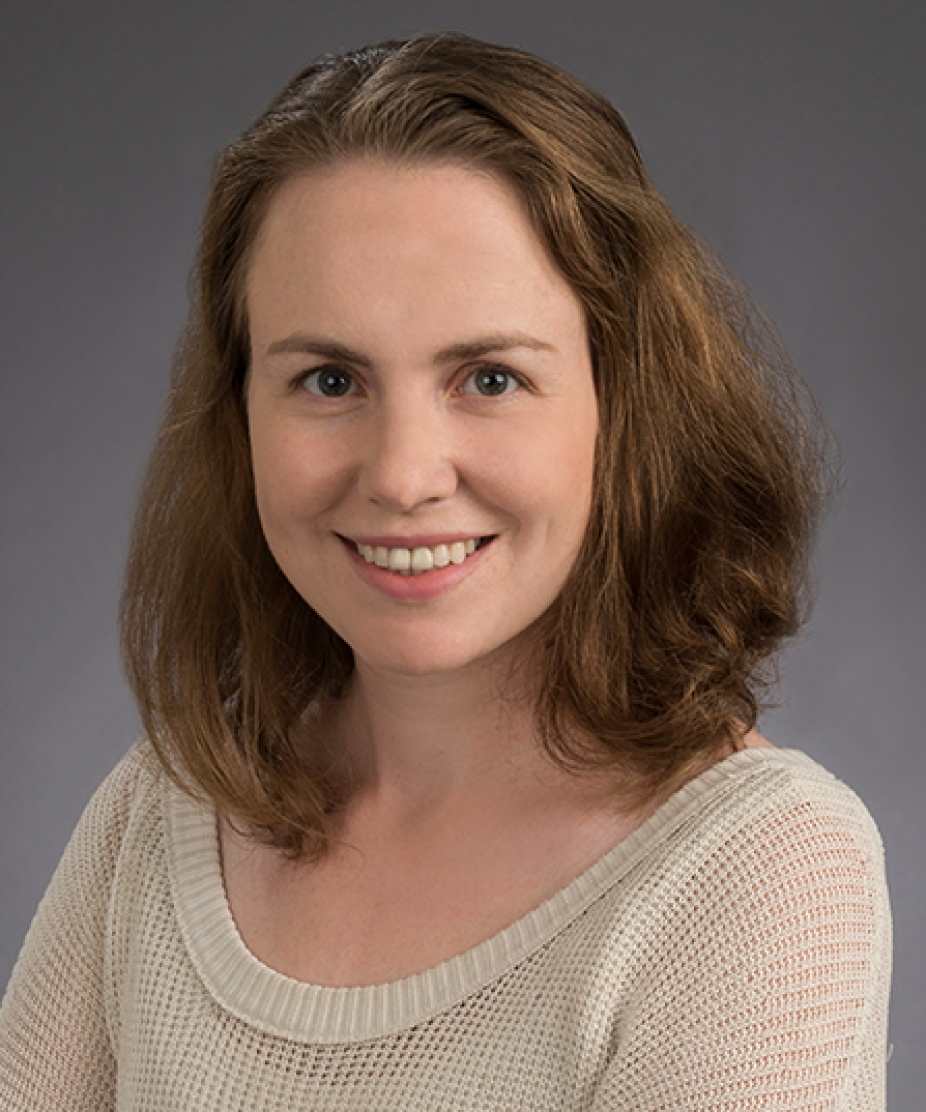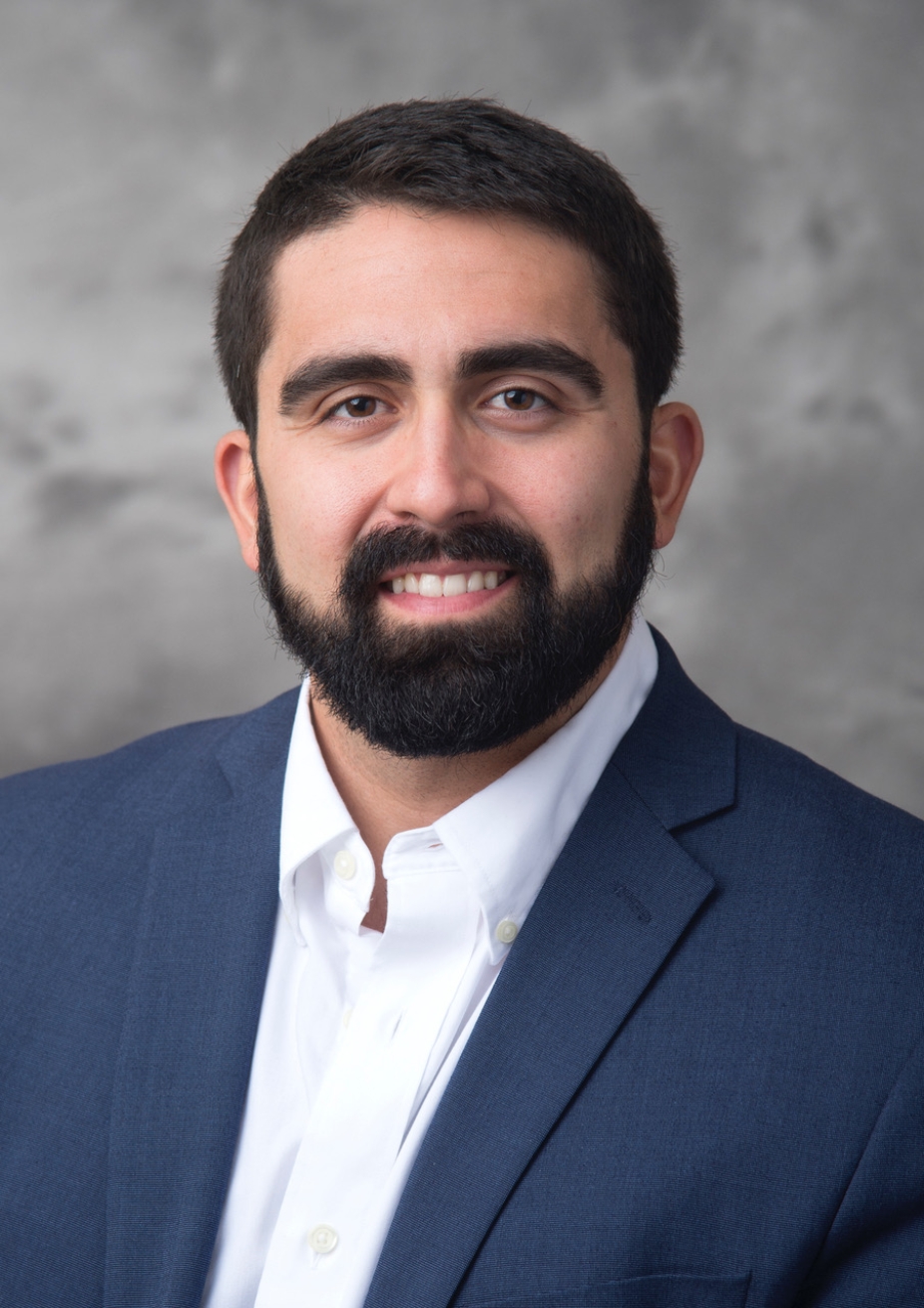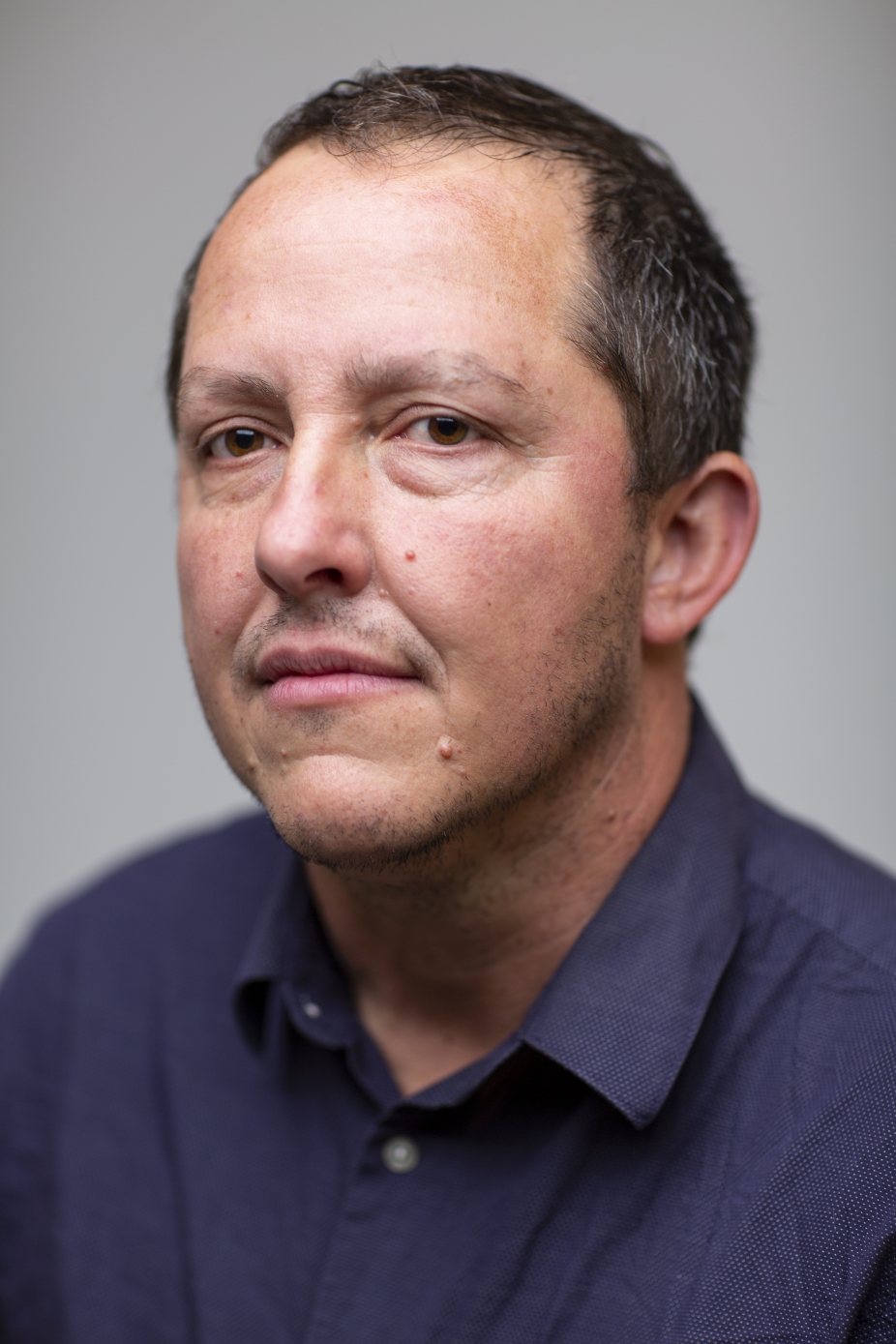2021-2023 Research Theme and Awardees
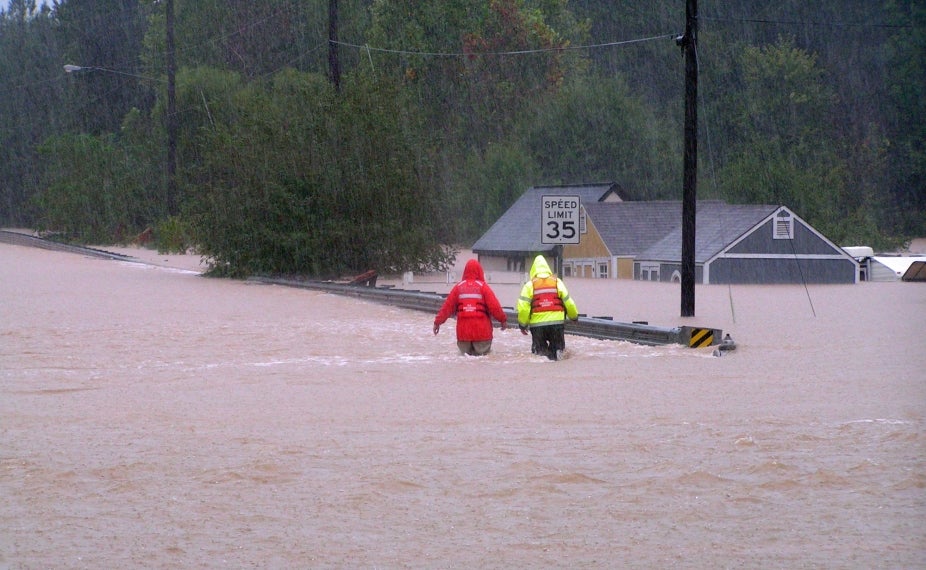
USGS
2021-2023 AWARDED PROPOSALS
Funded projects address a range of important topics, including improving social adaptation to wildfires, integrating climate data into farm management, communicating extreme weather risks for protecting human health and critical infrastructure systems, and mitigating bias for environmental justice in Black communities.
Successful applicants proposed timely, societally relevant, and cutting-edge research plans that reflected a convergence research approach as evidenced by early project co-development with NCAR scientists. The selection process prioritized research that partnered with under-represented groups and built on broadening participation efforts of the NSF and NCAR’s strategic priorities.

IDOWU AJIBADE |
PORTLAND STATE UNIVERSITY Equitable and transformative resilience planning for climate-related cascading disasters in Portland-Metro Area In 2020, the US experienced multiple concurrent disasters from extreme wildfires, devastating floods, powerful hurricanes, economic recession, a reckoning with racial inequities and injustices, and the spread of the deadly coronavirus. While the underlying mechanisms and drivers of these events differ, their combined and compounding effects have resulted in widespread social disruption, job losses, destitution, and death, particularly among Black, Indigenous and people of color (BIPOC). The overall objective of this study is to develop transferable knowledge of how cities can better prepare for and mitigate climate-related cascading hazards through integrated, adaptive, equitable and transformative resilience planning based on a case study of the Portland metro area. Our proposed study seeks to: 1) develop typologies of extreme events in the Earth system leading to cascading interactions and impacts on people, environment, urban infrastructure and services; 2) assess the uneven impacts of cascading hazards and the spatial and temporal threshold for disaster at the neighborhood and community scale; 3) develop a framework for measuring equity in urban resilience planning for better future outcomes; 4) use findings to build robust theoretical generalizations, practical interventions, and policy guidance. This study will integrate statistical analyses of historical weather and climate data (1979-2019) with future extreme event modeling, analyses of geospatial and census data (2010, 2020), semi-structured interviews and participatory scenario modeling to advance and deepen understanding of processes in society and in the Earth system that trigger cascading events. Student Researchers: Chris Lower, Emma Russell, Aswatha Raghunathasami, Alex Dresdner & Alanna Finn |
KEVIN ASHkash78@ufl.edu |
UNIVERSITY OF FLORIDA A Geospatial Awareness Framework for Weather Warning Communication and Decision-Support Recent technological developments allow the possibility of forecasts and alerts tailored to specific people, locations, and situations. This research explores the potential benefits and limitations of a warning trigger buffer model based on user-defined tornado geospatial awareness and decision thresholds. Warning trigger buffers were previously developed to model wildfire spread relative to geospatial thresholds (decision arcs) that correspond to the time needed to carry out evacuation and other response behaviors. This approach has promise for the severe local storm context as well, due to the complex integration of spatiotemporal information and storm attributes often required for timely and effective protective behaviors. The primary intellectual contribution of this research will be the development of a new conceptual framework for tornado warning communication in the United States through creation and preliminary evaluation of a spatially explicit geospatial awareness and decision-support tool. This framework and tool will extend the growing body of knowledge on geospatial risk communication and add to the interdisciplinary scientific toolkit for further research in the direction of flexible and user-specific decision support systems for weather and climate hazards. This research will result in positive societal impacts through broad access and dissemination of the final products, including the geospatial model, accompanying code, conference presentations, and open access publication of results of the analyses. The project will fund two graduate students each for two years, providing opportunities for interdisciplinary training, mentoring, and research. Student Researchers: Caley Feemster (caleyfeemster@ufl.edu) & Christopher Williams |
KELLY DUNNING |
AUBURN UNIVERSITY How Marginalized Communities are Adapting to Climate Change: A Case Study of Coral Reefs and the Communities that Depend on Them Warming oceans are changing global coral reef ecosystems in irreversible ways. In the U.S., they provide $3.4 billion in fisheries, tourism, and coastal protection services annually. Urgently, there is very little interdisciplinary research on how reef-dependent societies are adapting to climate hazards. Furthermore, it is likely that climate impacts will be borne disproportionately by low-income and communities of color, but we have limited data on how key stakeholders and decision-makers can facilitate adaptation to support human communities. Our research positions theories of adaptive, multi-stakeholder governance and resilience to natural hazards as a viable pathway to filling these knowledge gaps, asking the following research question: How are marginalized communities that depend on fragile coral reef ecosystems managing reefs through adaptive, multi-stakeholder governance of climate hazards? Sub-questions include: how are decision-makers and stakeholders envisioning responding to increasing challenges of the future? How can these insights inform coastal decision-making for more equitable adaptation? We propose a comparative, interdisciplinary, mixed methods case study requiring the expertise of social, biophysical, and climate scientists. Our team will study and compare multi-stakeholder governance of coral reefs in a low per capita income U.S. jurisdiction with coral reefs (Puerto Rico) and a higher per capita GDP case sites (the U.S. Virgin Islands). Using the adaptive, multi-stakeholder governance literature, we will compare four policy systems for coral reef management with special attention paid to how stakeholders are working within these systems to respond to climate hazards through an equity lens. Student Researcher: Greg Johnson & Dan Morris |
CATRIN EDGELEYcatrin.edgeley@nau.edu |
NORTHERN ARIZONA UNIVERISTY Improving Social Adaptation to Wildfire Through Informed Evacuation Planning and Decision-Making: What Role for Atmospheric Models? Recent fatalities and injuries associated with wildfires in the US and abroad invite a closer look at how residents living in fire-prone landscapes incorporate weather and fire behavior into decision making. Event-related changes like declines in air quality or visibility, smoke columns, wind speed, and rate of wildfire spread all have been identified as environmental cues that might trigger protective actions like evacuation at the household level during a wildfire. However, much less is known about how residents interpret and prioritize these cues when they are occurring simultaneously during wildfire, and the extent to which this varies across a gradient of fire and weather-driven impacts. Additionally, it is unclear whether there are “tipping points” for these cues at which residents commit to enacting a specific behavior during wildfire. This project will combine atmospheric modeling, surveys, and interviews to develop an interdisciplinary convergence framework at the intersection of natural, human-built, and social systems by addressing, (1) How do residents in fire-prone areas interpret weather and subsequent fire behavior to inform protective action decision making, and (2) How can atmospheric models inform public education about weather and subsequent fire behavior to improve social adaptation for wildfires in a changing climate? Findings from this effort can advance societal adaptation to fire and climate change by providing tailored guidance for communicating fire weather and behavior to diverse publics at different scales. Research through community partnerships in this project will empower diverse fire-prone populations to lead fire adaptation efforts, including underserved populations who may not have access to grant funding or expertise through other means. Student Researcher: Will Cannon |
KELSEY EMARDkelsey.emard@oregonstate.edu |
OREGON STATE UNIVERSITY Integrating climate data into farm management: A case study in the Willamette Valley, Oregon to guide actionable science The goal of this project is to produce transferable knowledge that facilitates actionable climate-soil science by addressing barriers to engagement between farmers and climate scientists. Farmers are increasingly impacted by severe weather related to climate change throughout the United States and elsewhere, yet simultaneously, farmer’s soil management decisions can have mitigating impacts on climate change as healthy soils sequester an impressive amount of carbon. Yet engagement between farmers and climate scientists remains limited for a number of reasons. This project will employ interviews, farm transect walks, and focus groups to understand how scientific data contributes to farmer soil management decision-making and identify factors that shape farmer use of climate and soils data. This knowledge is critical to better designing and integrating data into farmer soil management to support climate change mitigation and adaptive capacity, including future development of NCAR’s CESM, one of the few earth system models that explicitly represents managed agricultural systems. By exploring the models collaboratively with farmers, this project will facilitate knowledge exchange between scientists and farmers on soil management, climate impacts, and data usability. The project will contribute to an increased incorporation of farmer knowledge into modeling, improvement of models to better meet farmer needs, and a deeper understanding of the ideological, economic, policy, and/or technological barriers that prevent engagement between farmers of various backgrounds and climate scientists in the United States. Student Researcher: Olivia Cameron (camerono@oregonstate.edu) & Liz Hyde |
YUE (GURT) GE |
UNIVERSITY OF CENTRAL FLORIDA Science-Practice Partnerships for Hurricane Forecast Use in Enhancing Critical Infrastructure Resilience in Florida Empirical research has studied the public perceptions of hurricane tracking forecasts by surveying residents as “end-users” about their perceptions and use of hurricane forecasts. However, there is little research on how business sectors, especially the critical infrastructure providers, interpret and use forecasts and warnings, and how they respond to forecasts and warnings. Meanwhile, the historical linear model of the hurricane warning system has evolved into a nonlinear, networked, multilayered, and complex information flow system for decision makers in the public, private, and other sectors, as well as individual residents and businesses, which has led to a collective approach to making the best use of hurricane forecasts to reduce vulnerabilities and damages. The NCAR Innovators project stems from Gurt’s research examining cross-sectoral partnerships in enhancing community resilience. It will fill a research gap of how science-practice partnerships between weather forecast researchers and critical infrastructure operators can advance collective decision making to reduce community service disruptions during and after hurricanes, improve the emergency planning and business continuity of critical infrastructure sectors (e.g., electric power, fuel, and roads) before, during, and after hurricanes, and build the interdependent infrastructure system resilience to disasters. An ‘end-user’ survey of critical infrastructure operators will help weather forecast scientists and operational meteorologists better customize their forecast products and applications for varied industries providing power, fuel, and transportation infrastructures and services to the communities they work with in Florida and other coastal regions. Student Researcher: Theresia Bernadette Phoa |
MICHÉE LACHAUDmichee.lachaud@famu.edu |
FLORIDA A&M UNIVERSITY Climate Change, Adaptation and Welfare Implications: A Study of US Agriculture Agriculture is one sector in which climate change is expected to cause considerable detriment as farm output depends largely on environmental and agro-climatic conditions such as soil type, temperature, and precipitation. Climate change is projected to have significant repercussions on production decisions, choice and use of inputs, and thus on farmers’ behavior. Output and productivity losses due to climate change will likely increase food prices and exacerbate all dimensions of food insecurity, which in turn will impact social well-being worldwide. Therefore, the main goal of this project is to investigate the efficacy of adaptation and mitigation strategies in minimizing climate change-related impacts on US agricultural production. Connecting climate science and economy is relevant for policy makers and has critical social welfare implications. Another goal of this proposal is to advance Actionable Earth System Science through further developments to NCAR’s models simulating agricultural production. Farm management variables in NCAR models are often limited to planting date, irrigation, and fertilizer application. For instance, the NCAR CLM5-crop model can further be enhanced by including more common farming practices such as double cropping, crop rotation and by using accurate data on planting season instead of using planting dates from planting windows. Moreover, this project aims at contributing to the NCAR Community Climate Intervention Strategies Project (CCIS) goals by providing additional and relevant information on past and future management decisions that farmers had adopted and are likely to adopt in the future to cope with climate change. The main contribution of this project is accounting for farmers’ adaptive behavior towards climate change in terms of change in the crop/enterprise mix, input mix, the timing of planting/harvesting, and technologies. Student Researcher: Nicholas Reynolds |
MICHAEL MENDEZ |
UNIVERSITY OF CALIFORNIA, IRVINE Are Undocumented Latino/a and Indigenous Migrants Worthy Disaster Victims? This project will conduct archival research, data mapping, air quality modeling, and interviews with migrant workers, community activists, and government officials. The research will examine how undocumented Latino/a and Indigenous migrants in California are rendered invisible to policymakers and disaster relief organizations by systemic racism and cultural norms regarding U.S. citizenship and who is deemed a “worthy disaster victim.” American society routinely treats undocumented migrants, as well as other marginalized groups, such as the homeless, as less than human, outside the norm, and disposable. These forms of exclusion directly shape disaster planning and response. Outcomes from this research project would include articles published in peer-reviewed academic journals, policy briefs and presentations of findings to local, state, and federal policymakers, community groups, and the news media. These research outputs will be geared not only to academic audiences but also the general public and policymakers to ensure that the research findings are well understood and increase the capacity of substantive policy change in the disaster planning process for socially vulnerable populations. At the core of this project is the goal of linking novel and high-level scientific expertise with environmental justice problems on the ground. This project will not only advance scientific discovery, but also provide opportunities for teaching, training, and learning for a graduate research assistant on working directly with disadvantaged communities. This research will foster strategic connections between NCAR and social scientists to develop joint tools that address issues of air quality management, public health policy, and socioeconomic inequality. Student Researcher: Carlo Chunga Pizzaro (cchungap@uci.edu) |
AMY QUARKUME |
HOWARD UNIVERSITY Pathways to Mitigating Bias for Environmental Justice in Black Communities Overview of Research Project. This project is a three-tier interdisciplinary undertaking in consultation with colleagues at NCAR to understand the impacts of AI Bias, as it relates to Black, Latino/a, and Tribal communities. The main question explores, how can we detect and quantify the extent of societal, cultural, and historical bias in earth science and AI data, which consequently disproportionally impact margined communities? Through survey sampling, mapping, and AI data collection the study will explore the quality of earth science data, output and feedback loops of AI and ML models in five states (Louisiana, Michigan, Mississippi, Texas, and the District of Columbia) representing a cross section of African American, Latino/a and Indigenous Native American communities and cities in the US. Through these methods, the researchers hope to explore how algorithms exacerbate historical disparities for marginalized communities around pollution, weather, transportation, and disaster preparedness. Broader Outcomes. As a social scientist and historian, at the core of this project is the goal of closing the gap between data technology and cultural studies, with the hope of (1) expanding the interdisciplinary field of Africana Studies, AI, and Atmospheric Science as a vehicle to advance Actionable Earth System Science; (2) researching the depth of data bias in pollution, weather forecasting and disaster preparedness in the high population Black, Latino/a and Indigenous Native American communities; and (3) training more students to become culturally conscious scientists in mitigate bias. Student Researchers: Mikah Jones (mikah.jones@howard.edu) & Jessica Moulite |
KATHARINE RICKE |
UNIVERSITY OF CALIFORNIA, SAN DIEGO Geopolitically constrained earth system model simulations of climate geoengineering Climate geoengineering (CG), which refers to a set of approaches that would deliberately modify the Earth’s climate system to reduce effects or impacts associated with global warming, is the topic of a growing body of research. While the subject of most social and natural science research to-date involve global-scale interventions, a recent government-funded cloud brightening experiment in Australia as well as the plans for a sustained, continental-scale weather modification program in China, suggest that some major actors are closely considering unconventional options for mitigating the risks presented by climate change. These are both more regionally targeted in their implementation and constrained foremost by political and legal considerations as much as physical objectives. This proposal will focus on understanding the physical implications of geoengineering schemes driven by regional geopolitics. Recently, NCAR scientists have led path-breaking research simulating stratospheric geoengineering proposals using the Community Earth System Model (CESM) in order to understand how such a climate intervention may be deployed to maximize desirable climate outcomes while minimizing some known risks. The results of such studies can be hard to adapt to an international relations context as real-world climate policy does not generally follow a technocratic, unitary decision making approach. The proposed work will enhance the actionability of geoengineering research by exploring concrete, physically constrained examples of CG activities driven by political imperatives rather than anticipated physical outcomes. When contrasted with the larger body of geoengineering science, the proposed work will provide important context as response strategies and governance mechanisms are developed by the international climate governance community. Student Researcher: Jessica Wan (j4wan@ucsd.edu) |
FERNANDO TORMOS-APONTEfernandotormos@pitt.edu |
UNIVERSITY OF PITTSBURG Energy Inequality in the Wake of Disasters: Building Optimal Disaster Resource Allocation Approaches through Assessments of Social Vulnerability This project focuses on the drivers and consequences of the provision and restoration of electricity in the wake of weather-related power outages, an important determinant of loss of life, the effectiveness of emergency operations, the continuity of health systems, and the provision of water, among other public and private goods and services. This study draws from the fields of anthropology, sociology, political science, geography, geosciences, meteorology, statistics, and computational sciences to develop a new approach to allocating disaster recovery resources so as to reduce loss of life and reach optimal allocations that avoid overburdening vulnerable communities. Tormos-Aponte’s previous work on energy resource allocation throughout the hurricane María energy restoration effort in Puerto Rico yields alarming findings and motivates my proposed project. He found that governments were less responsive to marginalized neighborhoods, while neighborhoods amassing higher numbers of ruling party supporters, white residents, and affluent residents waited less to receive power restoration crew deployments in their communities (Tormos-Aponte et al., n.d.a). The timing of energy crew deployments is associated with excess mortalities after hurricane María (Tormos-Aponte et al., n.d.b), a phenomenon documented in previous research on the relationship between power outages and mortalities (Anderson & Bell 2012; Dominianni et al., 2018; Lin et al., 2011). Tormos-Aponte proposes to collaborate with NCAR scientists and fellow program participants to accomplish two main goals: 1) theorize and empirically examine the political drivers, dynamics, and consequences of social vulnerability to weather disasters and 2) develop analyses that inform disaster resource allocation decision-making. Postdoctoral Researcher: Sameer Shah (shs436@pitt.edu) Student Researcher: Gwen Alexandre, UMBC |
CLEO WÖLFLE HAZARDcleowe@uw.edu |
UNIVERSITY OF WASHINGTON Centering climate adaptation science and policy in Indigenous ecocultural practice to restore floodplains and ecohydrological processes in the Klamath River Basin, California. As they work to repair watersheds and firescapes degraded by settler-colonial resource extraction, Native and place-based communities like the Karuk and Yurok Tribes have long used Native fire management practices (cultural fire) to manage streamflow and moderate late-summer stream temperature. However, few climate models have explicitly evaluated the effects of restoring cultural fires at the landscape scale. Such management approaches can potentially benefit riverine species, and mitigate the impacts of increased wildfire expected in western North America. We propose to create historical and future cultural fire scenarios as inputs to an NCAR land model, then assess those model projections of hydrological changes within a cultural context group made up of Native and local natural resource managers in the Mid-Klamath Basin. We will develop a proof of concept for a basin-scale model of land, fire, and hydrology, incorporating historical land cover and fire recurrence interval data. Past and future climate-hydrology-fire scenarios will include a “max cultural fire” scenario, to demonstrate what impact implementation of the cultural fire plan could have on (a) fire recurrence interval and severity and (b) snowmelt-streamflow dynamics under a range of future climate scenarios. In the past decade, extreme drought and catastrophic wildfire has begun to shift state and federal policy to increase prescribed burning and cultural fire, but forest policy and air and land use regulations are major barriers to scaling current burning up to the landscape scale. Developing models that can evaluate the impact of cutting-edge Tribal initiatives that integrate riverscape and firescape management is a key step in breaking down these barriers. Postdoctoral Researcher: Daniel Sarna Student Researchers: Sofi Courtney, Casey Duncan, Robin Rhum (ruhm@uw.edu), Maddie Hicks & Hannah King |

